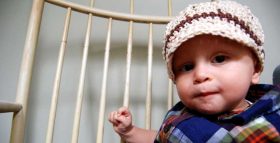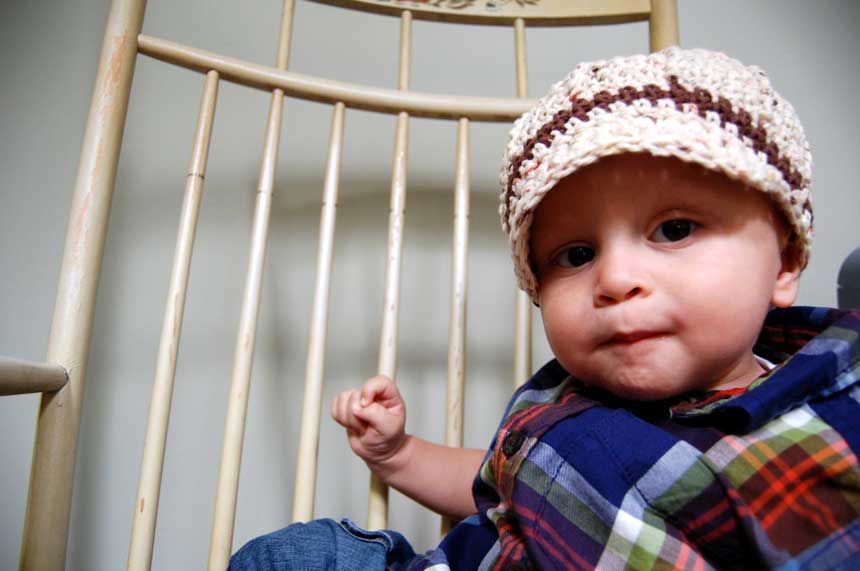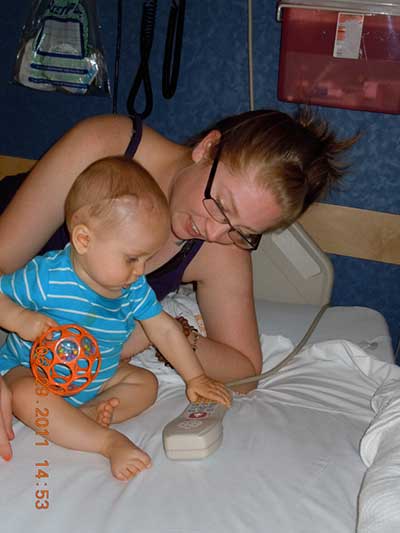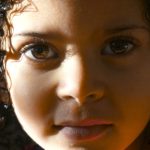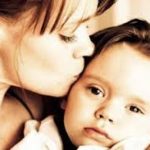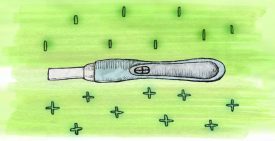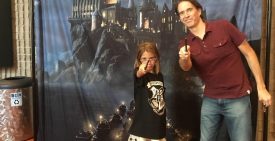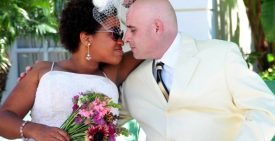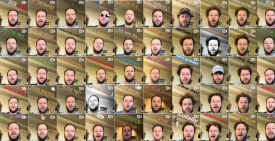I left the hospital that day feeling more lost and alone than at any other time before and even since. With each discussion shifting further from cure and closer to end-of-life care, I found myself in a new place that felt neither here nor there. Grasping for the familiar, I turned to the people I had come to rely on most during the 16 months fighting my infant son Kai’s brain tumor: cancer families and special needs moms who were the people who “got us” more than anyone else.
I rushed to them with our new truth: “The chemo isn’t helping. Not just this new protocol, but the last one and the one before that. The tumor is not responding and Kai’s pain is getting worse. I can’t keep putting him through this.” I pause, then continue: “We have decided to stop treatment and to focus on comfort care.”
Uttering that last sentence out loud, I instantly felt the unbridgeable gap that now lay between me and the community of cancer families with whom we had become so close. With the purest of intentions, our cancer friends sent us information about second opinions and the latest clinical trials. They supported us the only way they knew how: encouraging me to keep on fighting to save my son. But we were no longer on the same side. I had moved away from disease-directed treatment and was looking instead at my son’s end-of-life.
From the very beginning, when we had received the diagnosis, I had been unwavering in my prioritizing his quality of life over his quantity of life. I vowed repeatedly to never let the medicine take over — quite the challenge when battling cancer. And now it had come to the moment of truth: Kai was dying, I knew it, and I alone decided to stop the chemo and let him just live.
It was the single most difficult decision I hope ever to make. Completely unfathomable to most, I knew without much hesitation that stopping treatment was the best parenting decision I could make — even when contemplating his death was unimaginable.
Each moment that passed thereafter carried an eerie release: I surrendered to fully living in the present place and time, relishing sunny days, taking in the smells, finding small pieces of joy. I really was living each moment like it could be our last. It felt magical and empowering and also sadder than I can possibly explain. I watched him sleep for hours just to see him breathe. I also felt guilty and angry and scared as I secretly researched late into the night such terms as child death, life after the loss of a child, how to prepare for the end.
Somewhere along the way I remember hearing that our local cancer support house — where I had been attending monthly support meetings and met some of my cancer family — also provided support to families whose children had not survived. A bereavement group. I wondered who these bereaved parents were and if they had the answers I was looking for. Anticipating my own bereavement, I desperately needed to know that I would still have somewhere to go after Kai died, where people would get it, even if I wasn’t quite sure what it felt like yet.
It turns out I was the first person with a living child to reach out to the bereavement group. After some initial hesitation, the group agreed to let me in. With Kai tucked safely in his crib, pain meds pumping methodically through his veins, I attended my first support group for parents who had lost a child to pediatric cancer.
Related
The room was familiar — I had attended meetings in it many times before — but it carried an uncomfortable stillness that night. I sat shyly on the sidelines, containing the millions of questions I was bursting to ask: How do you know when it’s time to let go? What is it like in the end? Did you bury or cremate? What do you do with all of their things? Will I really be able to go on without him?
The session started with the typical introductions around the room:
“My daughter died 3 years ago after battling AML.”
“Our daughter died from complications of transplant. It was considered a remission death.”
“It’s been 16 years and I still struggle with nightmares and flashbacks.”
My questions and concerns about our future retreated to the back of my mind as I embraced the weight of the room. I visibly flushed with guilt when it was my turn to speak:
“Hello, my son Kai was diagnosed with an inoperable brain tumor at 8 months old. He has failed off of three chemotherapy protocols and last week transitioned to comfort care. Thank you for allowing me to hear the stories of your children.”
I felt embarrassed for sitting in front of these parents who would give anything for one more moment with their child, while mine was home tucked in bed, alive. I felt guilty for being so sure he was going to die, for giving up. And as much as I knew we were no longer in the world of curative hope, in that moment I also felt thankful that I did not yet know the world these parents inhabited, a world without their child.
I sat and listened silently for the rest of the night.
At the end of the meeting, the group invited me to come back the next month. I politely thanked them for welcoming me in, but inwardly I was in full protest mode. Suddenly, my body was sending out those little fighter cells that every cancer parent has, trying to convince myself that maybe, just maybe, Kai wasn’t going to die. I wanted to say I was sorry, that I had made a mistake and that I would not be back. My heart ached to hold my baby in my arms and never, ever let go.
Kai survived three months after stopping curative-oriented treatment. In those final months, we straddled the two worlds we then inhabited, a No-Man’s Land, where we lived life each day in the moment while also preparing for the end. We continued to work with Kai’s doctors and therapists to ensure the time he had left was comfortable and meaningful. Eventually I stopped listening for his breath and I learned to just live again.
In the final weeks leading up to Kai’s death, I replayed the stories I heard that night in the group with bereaved parents. Their stories, their children, now comforted me in a way they hadn’t that night, in way that I hadn’t known was possible.
In December 2012 I attended my second bereavement group. The familiar faces and stories reassured me as we went around the room. This time I spoke with no guilt and with less fear.
“Hello, my name is Kerri. My 2 year old son Kai died November 27 from an inoperable brain tumor.”
I was no longer alone. I was on the other side.
Kerri Padgett is a contributing writer and Community Manager for the Courageous Parents Network. She also directs a hospital-based Pediatric Massage Therapy program that provides services to children receiving palliative care. Read more about Kerri and Kai’s journey through life and loss on her blog, keikikai.wordpress.com And you can watch videos of Kerri talking about anticipatory bereavement and her life on the ‘other side’ at courageousparentsnetwork.org/video-by-theme.

